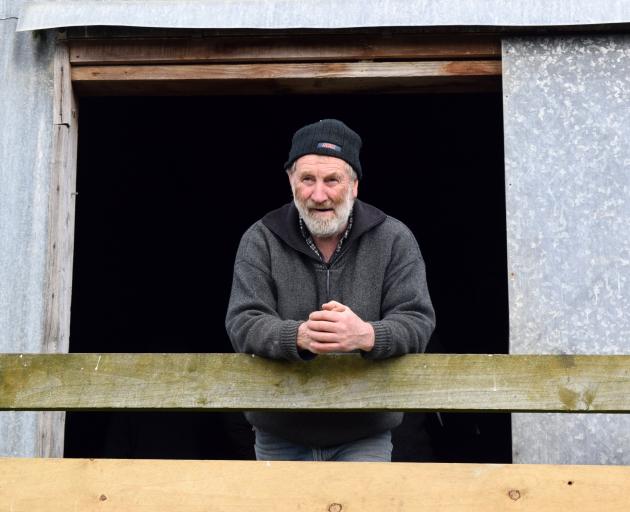Science
Researchers Investigate Facial Eczema’s Impact on New Zealand Farms

A study by Beef + Lamb New Zealand is examining the impact of facial eczema on sheep farming across the country. The research, led by principal scientist Cara Brosnahan, is currently in its third and final season, focusing on fresh sheep manure to identify the presence of harmful spores. The findings aim to enhance understanding of how this disease affects livestock health and farm productivity.
During the second season of the study, low levels of facial eczema spores were detected on four sheep farms in Otago. Additionally, one farm in Southland reported spores in the first season. All grazing livestock, excluding horses, are at risk of contracting the disease by ingesting toxic fungal spores primarily found in ryegrass pastures.
Farmers were notified whenever a facial eczema spore was identified in their manure samples. They were encouraged to continue submitting samples for ongoing monitoring of spore levels. If spore counts increased, farmers were advised to consult a veterinarian. According to Dr. Brosnahan, livestock might not exhibit clinical symptoms if they consume low levels of spores, which can lead to hidden issues such as decreased productivity or an increase in empty rates during pregnancy scans.
The presence of clinical signs of facial eczema has been confirmed in regions spanning from Northland to the West Coast. Notably, more than half of the manure samples from farmers in the northern parts of the South Island showed signs of the disease. The study indicates that factors such as farm elevation, pasture height, and neighboring spore counts may influence the likelihood of facial eczema outbreaks. Researchers aim to validate these findings in this season’s final phase.
Participation in the study is straightforward and free of charge. Farmers collect sheep manure samples biweekly from October to May. Beef + Lamb New Zealand provides the necessary kits and covers postage costs. Participants receive results to help gauge their risk of facial eczema, along with a $40 subsidy for fecal egg count tests and the opportunity to be selected for monthly testing.
Dr. Brosnahan emphasized the importance of this final season, stating, “We need more farmers to take part, especially if they’ve never had facial eczema detected on their farm before. Those results help build our understanding of this devastating disease.” The economic impact of facial eczema is significant, costing the sheep sector more than $330 million annually.
Facial eczema occurs when livestock consume sufficient spores, leading to liver damage. This can result in various health issues, including reduced fertility, weight loss, lower milk production, and, in severe cases, death. Dr. Brosnahan cautioned, “There’s no cure, so you’ve really got to be on top of the management before that happens.”
In the Catlins region, sheep farmer Graham Evans advocates for broader participation among southern farmers to track the disease’s effects. Evans has been actively involved in the study, collecting fresh manure from his property, Barr Falls Farm, since the initiative began. Despite no spores being found on his farm, he recognizes the inevitability of the disease spreading southward.
He stated, “It doesn’t matter whether you believe in climate change or not. It’s going to happen.” Evans hopes that more farmers in the Catlins and surrounding areas will contribute to the study, as conditions vary significantly across different sheep farming environments.
The ongoing research serves to protect the health of sheep flocks and contribute to a national understanding of facial eczema, benefiting both current and future generations of farmers. The final season’s results are expected to provide crucial insights into managing this persistent challenge in New Zealand’s agricultural landscape.
-

 World4 months ago
World4 months agoTest Your Knowledge: Take the Herald’s Afternoon Quiz Today
-

 Sports4 months ago
Sports4 months agoPM Faces Backlash from Fans During Netball Trophy Ceremony
-

 Lifestyle4 months ago
Lifestyle4 months agoDunedin Designers Win Top Award at Hokonui Fashion Event
-

 Entertainment4 months ago
Entertainment4 months agoExperience the Excitement of ‘Chief of War’ in Oʻahu
-

 Sports4 months ago
Sports4 months agoLiam Lawson Launches New Era for Racing Bulls with Strong Start
-

 World5 months ago
World5 months agoCoalition Forms to Preserve Māori Wards in Hawke’s Bay
-

 Health4 months ago
Health4 months agoWalking Faster Offers Major Health Benefits for Older Adults
-

 Lifestyle4 months ago
Lifestyle4 months agoDisney Fan Reveals Dress Code Tips for Park Visitors
-

 Politics4 months ago
Politics4 months agoScots Rally with Humor and Music to Protest Trump’s Visit
-

 Top Stories5 months ago
Top Stories5 months agoUK and India Finalize Trade Deal to Boost Economic Ties
-

 Health2 months ago
Health2 months agoRadio Host Jay-Jay Feeney’s Partner Secures Visa to Stay in NZ
-

 World5 months ago
World5 months agoHuntly Begins Water Pipe Flushing to Resolve Brown Water Issue









